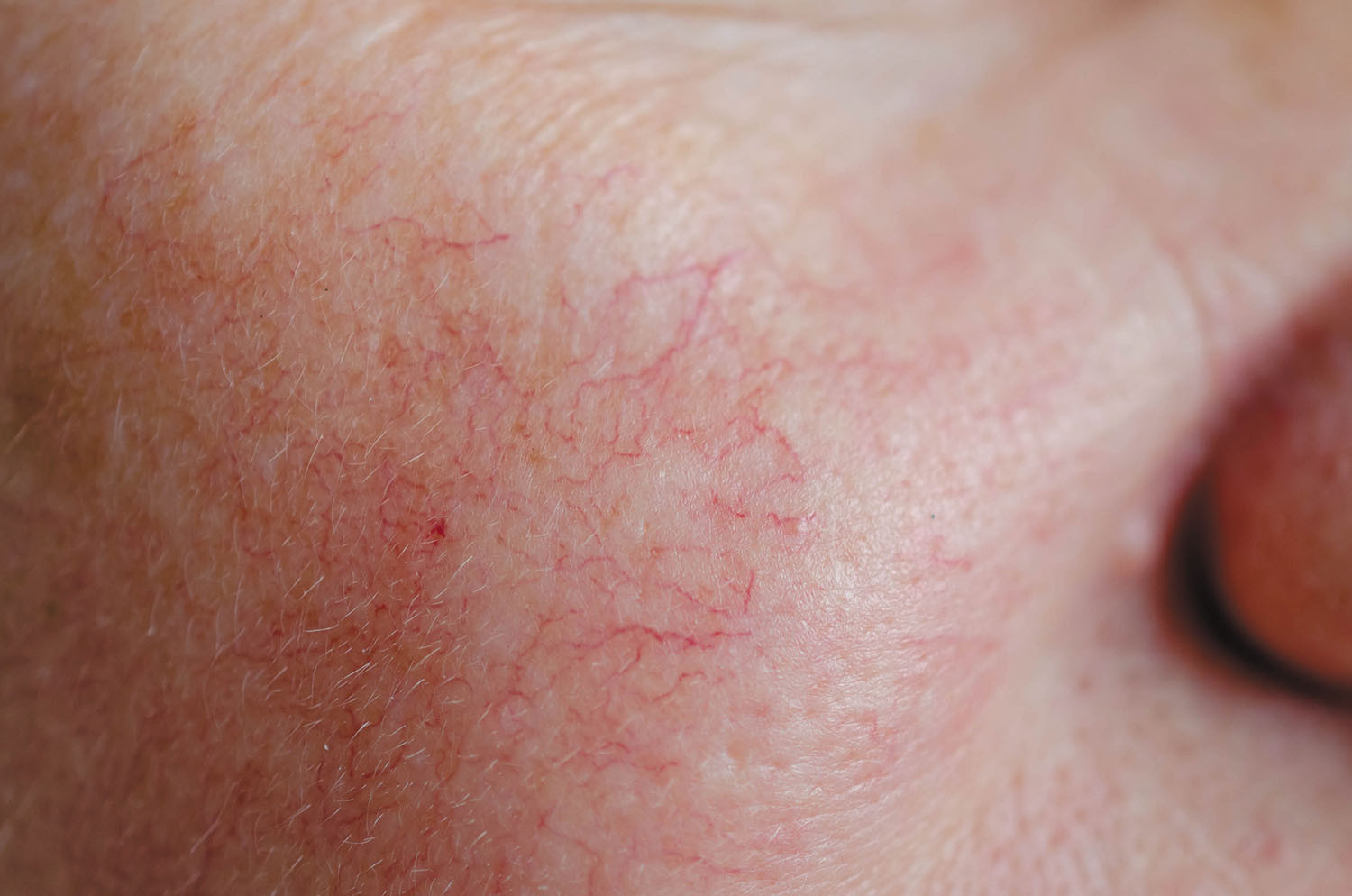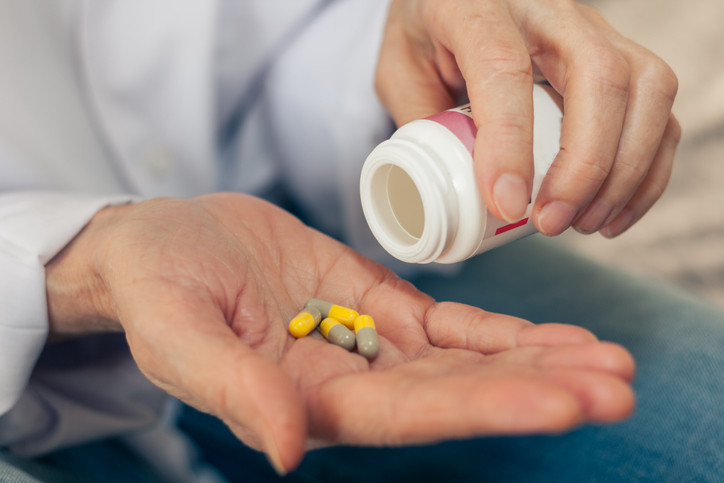
5 timeless habits for better health

What are the symptoms of prostate cancer?

Is your breakfast cereal healthy?

When pain signals an emergency: Symptoms you should never ignore

Does exercise give you energy?

Acupuncture for pain relief: How it works and what to expect

How to avoid jet lag: Tips for staying alert when you travel

Biofeedback therapy: How it works and how it can help relieve pain

Best vitamins and minerals for energy

Should you take probiotics with antibiotics?
Medications Archive
Articles
New advice about a common heart variation: Patent foramen ovale (PFO)
Researchers are beginning to better understand if, when, and how to address this condition, which is linked to a newly recognized type of stroke.
In the womb, all fetuses have a foramen ovale (Latin for "oval hole") between the heart's right and left upper chambers (atria). This opening allows blood to take a shortcut within the heart rather than following a longer path through the lungs, which cannot work until they are exposed to air. After birth, when a newborn baby takes his or her first breath, the foramen ovale begins to close. Most of the time, it seals completely within a few months.
But in about a quarter of people, that doesn't happen. This anatomical variation is called a patent foramen ovale (patent means open) or PFO. Most people never know they have it, because a PFO doesn't cause any signs or symptoms. For the most part, the condition is harmless.
Will my herniated disc heal on its own?
Ask the doctors
Q. I have a herniated disc in my back. What does this mean, and will this heal on its own?
A. A herniated disc, also called a slipped or ruptured disc, is a common problem that can happen at any age, but becomes more common in middle age and beyond. It occurs when the jelly-like filling in a spinal disc — one of the pads between your vertebrae, or spinal bones — breaks through the disc's outer shell, called the annulus, and bulges through the tear. When this happens, the material may press on nearby nerves, which can cause a host of symptoms including inflammation, pain, and numbness. Where in your body you experience these symptoms depends on the location of the herniated disc. For example, if the disc is in your neck, you may feel pain down your shoulder and into your arm. If the disc is lower in your back, it may irritate your sciatic nerve, which can cause pain that radiates through your buttock and down your leg. The good news is that in most cases — 90% of the time — pain caused by a herniated disc will go away on its own within six months. Initially, your doctor will likely recommend that you take an over-the-counter pain reliever and limit activities that cause pain or discomfort. But in some cases, if you've been using these strategies and haven't noticed an improvement, your doctor may recommend further evaluation and possibly an additional treatment strategy, such as physical therapy. Surgery is typically not recommended unless the problem does not respond to therapy, if you are having an increasingly hard time moving, or if your doctor believes the spinal cord is being compressed.
How do doctors evaluate treatments for heart disease?
Studies of drugs, diets, and devices all come with their own unique set of challenges.
The best way to know if a new medical treatment truly works is with a randomized controlled trial — the "gold standard" of research studies, also known simply as a clinical trial. Volunteers are randomly assigned to receive either the new treatment or the comparison, which may be a placebo (an inactive therapy) or a treatment that's already available.
As the nation's top cause of death, cardiovascular disease has been at the leading edge of evidence generation, says Dr. Robert Yeh, director of the Smith Center for Outcomes Research in Cardiology at Harvard-affiliated Beth Israel Deaconess Medical Center. "We probably have more evidence for cardiovascular treatments than for any other field of medicine," he says. Among the studies with the greatest impact were the clinical trials that heralded new therapies to treat heart attacks. These include clot-dissolving drugs in the 1980s, followed in the 1990s by artery-opening angioplasty procedures, which remain the standard of care today. Stents, the tiny mesh tubes used in these procedures, have also been extensively studied in clinical trials (see "Testing devices: Different dilemmas").
Too many pain pills after surgery: When good intentions go awry
A reasonable and well-intentioned effort to reduce and relieve pain can inadvertently lead to a potentially life-threatening addiction, but there are some surprisingly simple ways to avoid such scenarios.
Will there be a COVID-19 vaccine?
Ask the doctor
Q. Will we have a vaccine to prevent COVID-19 and, if so, when?
A. I'm optimistic because never in human history has so much scientific time and effort been spent trying to make a vaccine. But it won't it be easy. As fast as possible, the vaccine scientists need to prove, first, that a vaccine is safe (minimal side effects) and, second, that it works to reduce a person's risk of getting the disease. Then they need to produce enough of it to immunize most of the 7.6 billion people on earth. Doing all of this within two to three years of a new virus being discovered would be an unprecedented achievement.
Rosacea can flare at menopause
Tips to help you treat this common skin condition.
You thought you left acne behind you in your teen years, but here you are at midlife with a breakout. But it might not be what you think. Rosacea is often mistaken for acne, and the condition, which most often begins after age 30, sometimes flares at menopause, says Dr. Suzanne Olbricht, an associate professor of dermatology at Harvard Medical School.
A common skin condition affecting some 16 million Americans, rosacea most often develops in people with fair skin who blush easily. Rosacea is sometimes mistaken for sunburn, a naturally ruddy complexion, or even an allergic reaction. It produces a number of skin problems, including
Is it time to consider using medical marijuana?
The stigma is fading, but learn the pros and cons before trying it.
Despite the hype and popularity of medical marijuana, you may not be sure if it's something to consider. You're right to be cautious; the use of marijuana to treat health problems is still being studied, and we don't have all the answers about its risks and benefits.
We do know that medical marijuana use among older adults is increasing. "Older adults tend to use it for physical ailments. No. 1 is chronic pain. Insomnia is another big one, too. Older people have a hard time sleeping, and there aren't a lot of other safe options," says Dr. Peter Grinspoon, a primary care physician with Harvard-affiliated Massachusetts General Hospital.
How to recover from post-traumatic stress disorder
Normally associated with veterans, PTSD can also affect people of all ages who have experienced any kind of trauma.
Post-traumatic stress disorder (PTSD) is a severe and potentially debilitating mental health disorder that affects people who have experienced or witnessed a traumatic event. PTSD often occurs in combat veterans, but it can also strike older adults, and especially men.
About 70% of older men have been exposed to trauma at some point in life, according to the U.S. Department of Veterans Affairs. Many of these traumatic events are accidents (or near misses), injuries, or serious health issues.
Another strategy to cope with life’s dark times
News briefs
The United States is reporting increasing numbers of "deaths from despair" (suicide, drug overdose, or alcohol poisoning). Antidepressants and psychotherapy are often used to help people who are having a hard time coping with extremely difficult times and who are at risk for dying because of it. A recent Harvard study found that another strategy may also play a part in countering despair: attending religious services. The study, published online May 6, 2020, by JAMA Psychiatry, evaluated self-reported religious service attendance among 110,000 white, middle-aged men and women who were followed for about 30 years. Compared with never attending religious services, going at least once per week was associated with a much lower risk of death from despair: 68% lower for women and 37% lower for men. Researchers say that religious participation — regardless of affiliation — may serve as an antidote to despair and provide a sustained sense of hope, meaning, peace, and positive outlook. Also, faith-based organizations promote social engagement and connectedness and preach against self-injury and substance use. The study was observational and does not prove that regularly going to a religious service prevents death from despair. However, we know from other Harvard research that using religion to cope is associated with improved outcomes for people with severe psychiatric illness. Due to the pandemic, it may be difficult to attend your usual place of worship. Consider attending services via teleconference. If you attend in-person services, wear a mask and try to stay six feet away from others.
Image: © fstop123/Getty Images
Pain relief that's safe for your heart
Some common painkillers may boost the odds of a heart problem. Use them wisely to lessen your risk.
In 2004, the drug maker Merck pulled rofecoxib (Vioxx) off the market, following revelations that the popular prescription painkiller increased the risk of heart attacks and strokes. That action triggered a closer look at drugs in the same class, known as nonsteroidal anti-inflammatory drugs (NSAIDs). These drugs, which are widely used to ease pain, quell inflammation, and cool fevers, include over-the-counter drugs such as aspirin, ibuprofen (Advil, Motrin), naproxen (Aleve, Naprosyn) and the prescription drug celecoxib (Celebrex).

5 timeless habits for better health

What are the symptoms of prostate cancer?

Is your breakfast cereal healthy?

When pain signals an emergency: Symptoms you should never ignore

Does exercise give you energy?

Acupuncture for pain relief: How it works and what to expect

How to avoid jet lag: Tips for staying alert when you travel

Biofeedback therapy: How it works and how it can help relieve pain

Best vitamins and minerals for energy

Should you take probiotics with antibiotics?
Free Healthbeat Signup
Get the latest in health news delivered to your inbox!
Sign Up











